- 2 hours ago
- Northampton
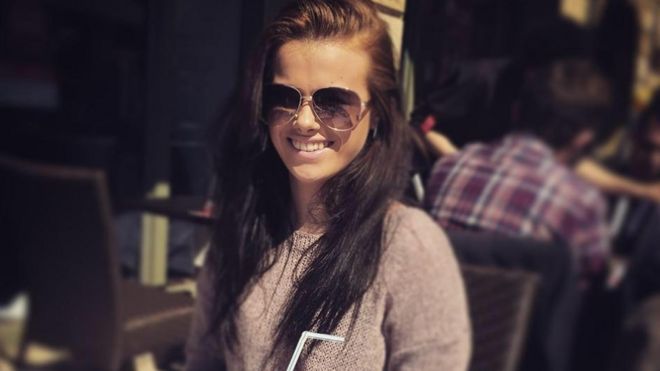 NORTHAMPTONSHIRE POLICE
NORTHAMPTONSHIRE POLICE
A seemingly kind passer-by stopped to help a distressed woman outside a nightclub. But far from being a helping hand, Edward Tenniswood was a calculated obsessive who lured India Chipchase to her death in his plastic sheet-covered home. How did it happen?
"India Eve Chipchase please let me know you're ok please darling... love you xxxcc." By the time Suzanne Chipchase posted this short message on Facebook, her daughter was already dead.
When police broke down the door of a rented terraced home in Northampton, they found the clothed body of 20-year-old India lying on a mattress on the floor of the front bedroom.
Her body was covered with a plastic sheet. Two glasses sat on a tray nearby. The bedside light had been left on.
One of the officers who found her initially shook her, saying "wake up wake up it's the police".
But India, who had been raped and throttled, was dead.
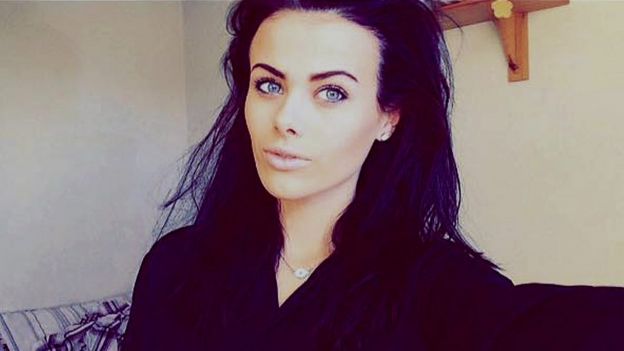 SBNA
SBNA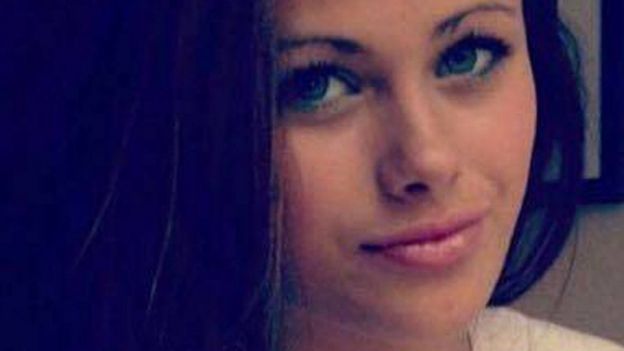 NORTHAMPTONSHIRE POLICE
NORTHAMPTONSHIRE POLICE
Earlier that evening, India had been on a Friday night out with friends, drinking and laughing as well as getting angry about the state of an on-off relationship.
At NB's nightclub in Northampton, she bought a round of Jagerbombs for her companions, who said she was dancing and "having a good time". But as the night wore on, her mood darkened.
Friend Alice Lewis said India got upset and had "a 30-second outburst" about her romance with Grant Hare.
"She just told me they weren't speaking much anymore," said Ms Lewis. "She was upset."
Later, Harry Moylan and Ms Lewis noticed India had disappeared from the club. "We thought she'd either gone home, or met up with other friends," Mr Moylan said.
She hadn't met up with other friends, and she never made it home.
In fact, India was outside. She told door staff she wanted "to go home", so one of the security team found her a taxi.
The driver, Andrew Birkenshaw, saw India was the worse for drink and asked for the fare in advance.
India certainly wasn't going to pay ahead of the journey, Mr Birkenshaw recounted. He said she "got angry and threw a wobbly" before leaving the cab.
Instead, she went back towards the club and was refused re-entry as she was deemed to be too drunk.
Was there a duty of care?
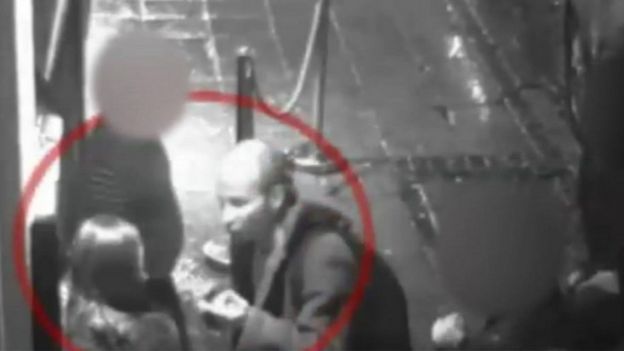 AFP
AFP
If India Chipchase had been allowed back into NB's club, she might have rejoined her friends and still be alive today.
The club acted within the law in refusing her re-entry. Its own website states it "operates a zero tolerance towards binge drinking", urges its clientele to consider their state of health before a night out and "reserves the right to refuse entry at all times".
But it also advertises "drinks starting at just £1" and asks its punters whether they are "brave enough to get DELIRIOUS with us?"
Asked by the BBC whether it might have done more for India or whether there was a double standard in its drinks promotion and binge drinking stance, the club has yet to respond.
Rachel Griffin, of the Suzy Lamplugh Trust, while unable to comment on India's specific case, said: "Nightclubs and bars, which profit from people going out and having a good time, have a duty of care to their customers.
"This should include having a policy of looking out for people who may have become separated from their friends or those whom others may seek to take advantage of if they appear vulnerable."
It is increasingly common for taxis and minicabs to ask for up-front payments toprotect drivers from dodged fares, although some places such as Birminghambanned the practice on the grounds it could put vulnerable people at greater risk.
"We have called for a long time for more standardised, national practice for taxis and private hire vehicles (minicabs) so that passengers know what to expect when they use them," Ms Griffin added.
"It has to be safer for passengers, who believe they are taking the safe option of getting a taxi or minicab home, to have the confidence that they won't be turned away if they can't pay in advance - or that they will be able to stop to get cash on the way home.
"Even better would be for passengers to be able to pay by card as standard."
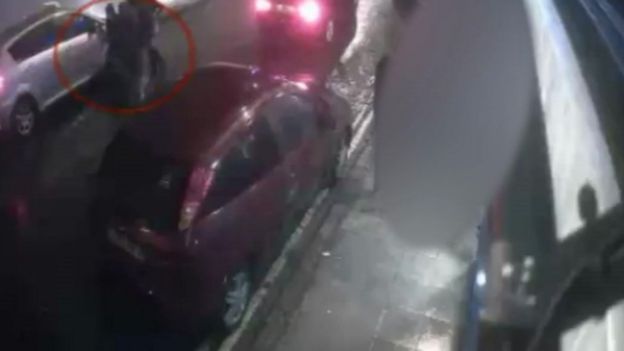 NORTHAMPTONSHIRE POLICE
NORTHAMPTONSHIRE POLICE
At about 01:00 GMT, India was spotted by Christopher Christon who was awaiting a ride home with his wife Jacqueline near the club.
"She seemed quite distressed," he said. "I think she was trying to get through to someone (on her phone). It seemed like she was crying."
An older man wearing a duffel jacket and a rucksack got "all the way up" to India, he said.
"He asked if she was OK," Mr Christon added. "He put his arm around her and said, 'We'll make sure we'll get you home in a taxi, safely'."
The time was 01:15 GMT. The man was Tenniswood, who was heard telling her to put her phone in her bag.
Tenniswood claimed they had developed a "bond" outside the nightclub. He said he told her: "Well I'm going to get a cab home and a drink at my place, you're very welcome to come if you want to."
He claims she said "yes" and they got into a taxi together.
The driver of that taxi - Azzizula Miagan - thought both Tenniswood and India seemed "drunk". Tenniswood did almost all the talking.
Tenniswood - who claimed to be "lucky enough to have had some extremely attractive girlfriends, some of whom are fashion models" - didn't give his actual address, asking instead for them to be dropped off some distance away.
India and Tenniswood were then seen walking down Stanley Road by Patrick Francis, who was smoking a cigarette in the street.
"The man started helping the woman across the road, he was leading her by the arm," he said.
"He opened the door and guided her in."
Inside 6 Stanley Road
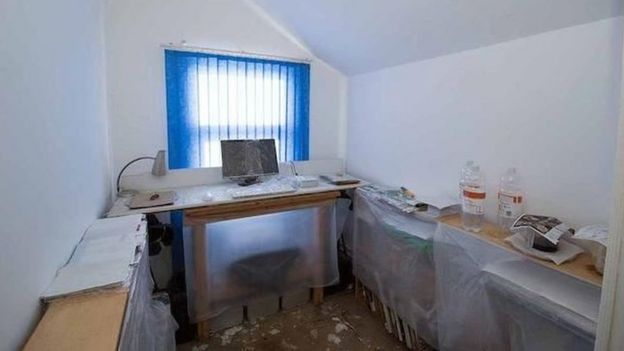 OTHER
OTHER
Tenniswood was a "meticulous" loner, whose home revealed an obsession with cleanliness, laid bare for all to see in an estate agent's property pictures.
His landlord had tried to sell 6 Stanley Road - Tenniswood's home since 2010. Photographs of the three-bedroom house revealed an interior covered in plastic sheets, food bowls covered with plates and newspaper on the floor.
There was nowhere to sit down and socialise - all the usual accoutrements of interior living were covered up and pushed away. Even his computer was covered in plastic food wrap.
"It seems illogical to keep cleaning it to use it," Tenniswood would tell the trial jury. "Instead you just replace the cling film, rather than the rigmarole of cleaning."
Tenniswood - who claims to have obsessive compulsive disorder - was a compulsive hand washer, sometimes scrubbing them red raw. And he often wore latex gloves, which he bought by the 100 for £3.99 from Poundstretcher.
The curtains were always drawn and there was only ever one light on in the house in an upstairs room. Tenniswood said he "contained" himself to living upstairs.
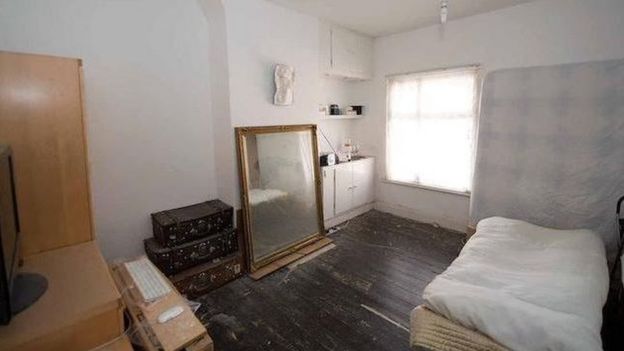 OTHER
OTHER ZOOPLA
ZOOPLA
When Grant Hare got home that night he charged up the flat battery on his phone. When it turned on, it revealed he had nine missed calls and two text messages from India.
One read simply: "Where are you?"
Mr Hare, giving evidence during the trial, said the couple were "not quite boyfriend and girlfriend" and that he was unaware of the suggestion they had romantic problems.
Three of the missed calls were at 01:26, 01:27 and 01:28 - just minutes after India had been "led, steered or escorted" into Mr Miagan's cab by Tenniswood.
When he realised he had missed her calls and messages, Mr Hare tried three times to reach her.
All of the calls went to voicemail.
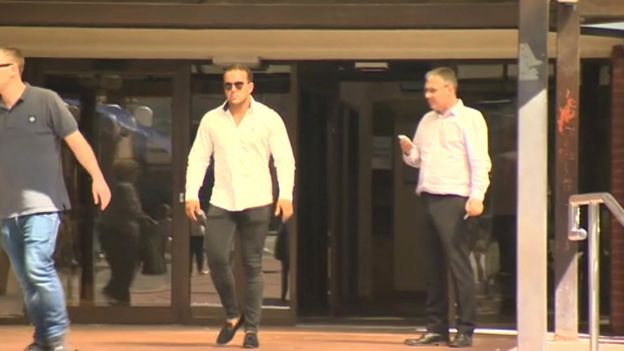
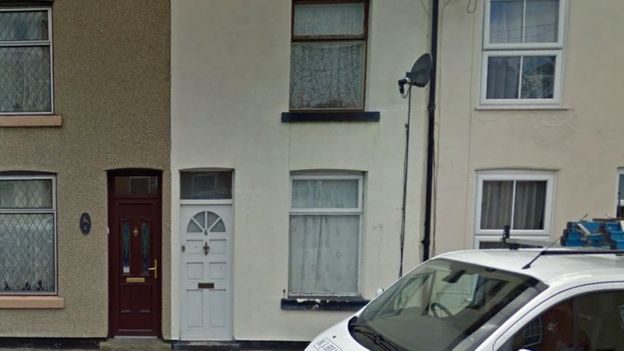 GOOGLE
GOOGLE
Exactly what happened inside the house on Stanley Road might never be fully known, but forensic results provide at least sketch.
There was a cigarette butt with India's DNA on it found in a cup in the kitchen. Her palm and fingerprints were discovered on doorways in and out of downstairs rooms.
Post-mortem examination results found India had almost three times the alcohol drink-drive limit in her system which, a pathologist stated, would have caused "disorientation" and "mental confusion".
Tenniswood claimed India went to his bathroom and he poured two glasses of wine. When she returned, he claimed India seemed happier and more alert.
They sat, he claims, and shared a "tender moment" opposite a large mirror in his bedroom.
"She just happens to make this incredibly moving comment. Just a sweet India thing to do," claimed Tenniswood, bizarrely suggesting knowledge of a woman he had met about an hour earlier.
"The two of us were framed in the mirror and she said 'it looks like we are in the middle of an oil painting' and she put her arm around me and she squeezed, almost like we were posing for a selfie," he added.
The jury, however, found his claims impossible to believe - just as it did with his claim that throttling her was the result of his "over-eagerness" to satisfy her in bed.
They instead decided the evidence showed he raped and murdered her.
India put up a struggle, which led to Tenniswood's blood being left beneath one of her fingernails. But by 03:00, she was dead.
Donning surgical gloves, Tenniswood cleared up. He re-clothed her, covered her body and left.
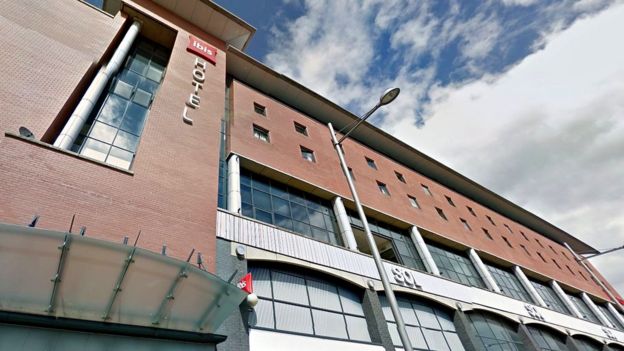 GOOGLE
GOOGLE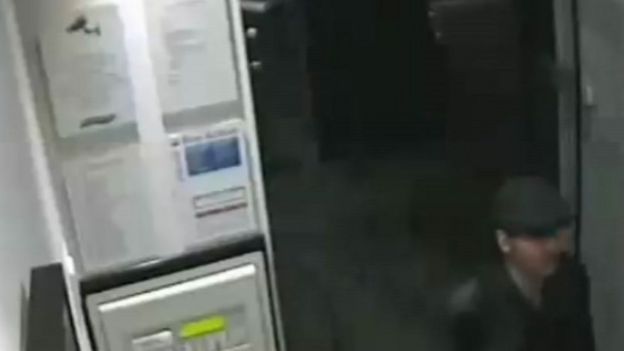 NORTHAMPTONSHIRE POLICE
NORTHAMPTONSHIRE POLICE
Concerns for India's welfare grew quickly after she failed to make contact with her family on Saturday, and then did not turn up for work at the Collingtree pub.
While her family used social media to appeal for information on the day she went missing, it was not until the following afternoon that Northamptonshire Police appealed for the public's help in finding her.
The force's handling of the missing person dimension of the case is currently subject of an Independent Police Complaints Commission (IPCC) investigation.
Reported missing on 30 January, India's body was found inside Tenniswood's home at about 15:30 on 31 January. Despite not having a criminal record, one officer recognised Tenniswood from the CCTV of them getting into the taxi.
A trawl of earlier CCTV showed him lurking outside the club two weeks previously on 16 January. He was wearing the same clothing and carrying a backpack.
PC Steven Knight, who found India's body, described how he initially tried to shake her awake.
"The first thing I noticed was the hair at the top of the mattress. Initially, I thought it was fur. The hair was displayed. Instead of being down, it was pulled up and around - sort of a halo."
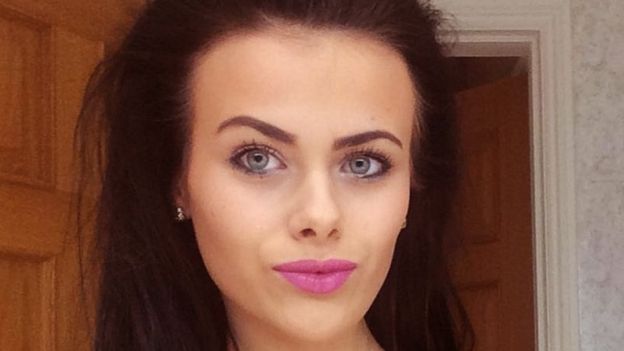 NORTHAMPTONSHIRE POLICE
NORTHAMPTONSHIRE POLICE
India's body had more than 30 fresh injuries, some of them consistent with an assault.
Her belongings - including handbag, shoes and mobile phone - were placed around the house in such a way as to appear inconspicuous.
There were "other women's clothes and shoes" dotted throughout his rented home. These, and newspaper clippings of women he believed resembled former girlfriends, were regarded by Tenniswood as "ornaments", the trial heard.
Three hours after entering his home, police caught up with Tenniswood at a nearby Ibis hotel. He was in the lounge watching television, and his greeting was chilling.
"You know who I am - Edward," he told officers.
"I'm surprised you were so quick, it didn't take you long to find me.
"I suppose you've been to the house - you've found what you're looking for.

No comments:
Post a Comment